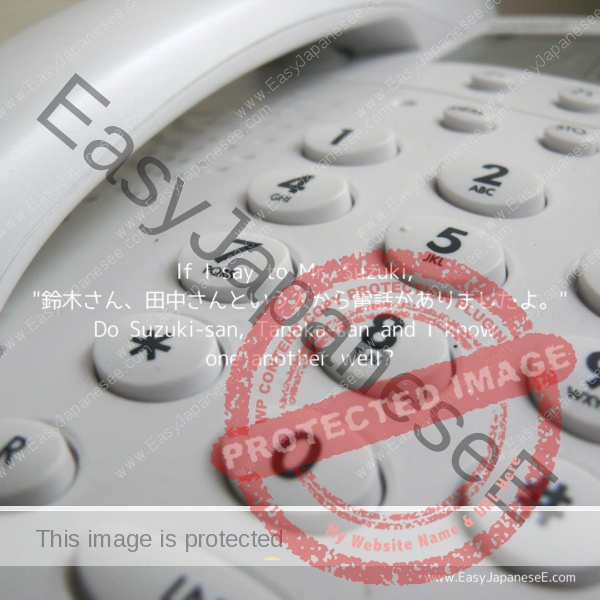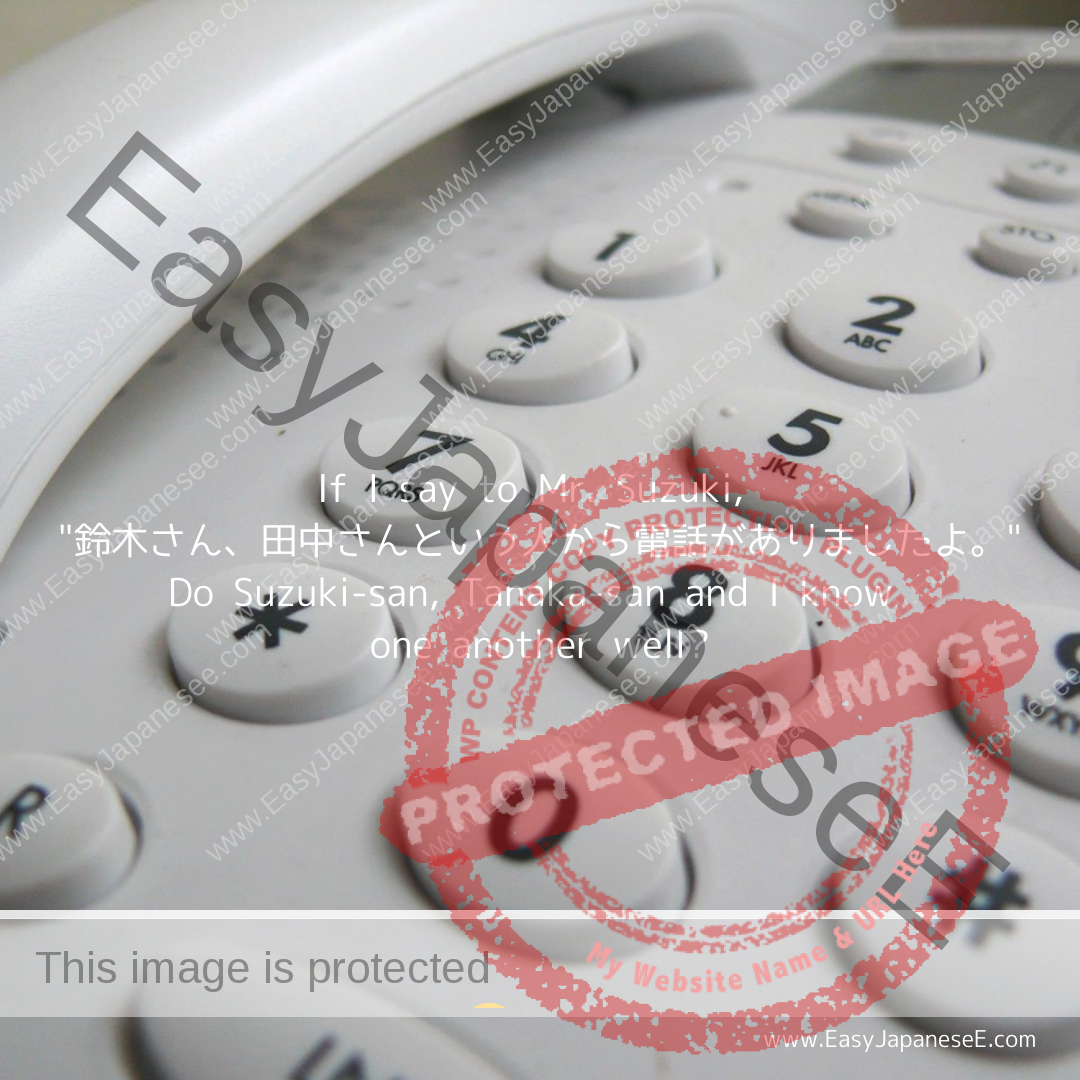Today’s Question
If I say to Suzuki-san, “鈴木さん、田中さんという人から電話がありましたよ。”
Do Suzuki-san, Tanaka-san and I know one another very well?

Today’s Grammar Point: ~という…
Connection
[noun ~] という [noun …]
[clause] という [noun …]
Meaning
[noun ~] という [noun …]: [noun …] called [noun ~]
This implies that the speaker is unfamiliar with the [noun ~] and/or that the speaker doesn’t think the hearer(s) is/are familiar with the [noun ~]
[clause] という [noun …]: a/the [noun …] that [clause ~]
With this the [clause] explains the content of the [noun …]
Examples of [noun ~] という [noun …]: [noun …] called [noun ~]
- 田中さんという人から電話がありました。
There was a call from a person called Mr. Tanaka called.
(implies that I don’t really know Mr. Tanaka or that I don’t think Mr. Suzuki knows Mr. Tanaka.)- Cf. 田中さんから電話がありましたよ。
There was a call from Mr. Tanaka.
(implies that we both know Mr. Tanaka.)
- Cf. 田中さんから電話がありましたよ。
- クグロフというケーキを食べてみたい。
I want to try a cake called a gugelhupf.
(implies that the speaker thinks the hearer may not know what gugelhupf is.) - 源氏物語という日本の古典を読んだことがありますか。
Have you read a Japanese classic called the Tale of Genji?
(implies that the speaker thinks the hearer may not know what Genji Monogatari is.)
Examples of [clause] という [noun …]: a/the [noun …] that [clause ~]
- 昨日東京で地震があったというニュースが入ってきました。
The news has just come in that there was an earthquake in Tokyo. - 源氏物語の冒頭部分を暗唱するという宿題が出た。
A homework has been set that I have to recite the beginning part of The Tale of Genji from memory. - 母が危篤だという知らせが来た。
The news came in that my mother is in a critical condition. - 好きな人と一緒に暮らせるという幸せは何にも代えられない。
Nothing can replace the happiness that I can live with a person I love. - 父は毎日五キロ歩くという日課を今も続けている。
My father is still following his daily work of walking 5 km every day.
Answer to Today’s Question:
The phrase ~という suggests that Mr. Tanaka is unfamiliar to me and/or Mr. Suzuki.

